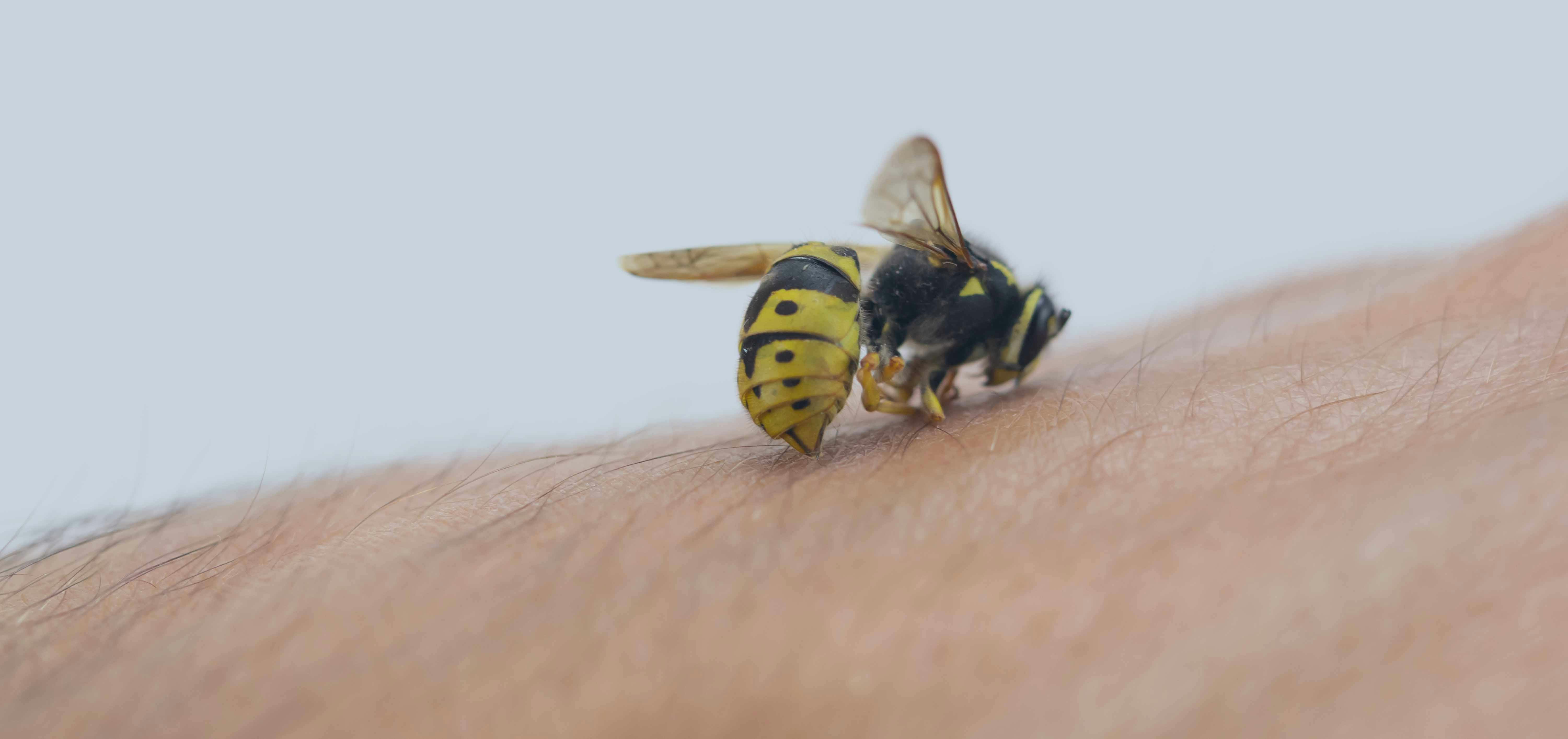Insect bite


Introduction
Introduction
A number of insects and other arthropods can bite or sting us.
Insects or arthropods that sting or bite with their mouthparts (such as mosquitoes, bed bugs, ticks, fleas, sandflies, chiggers) can transmit certain diseases through their saliva.
Those that sting with a stinger (such as bees or wasps) inject venom that will cause a reaction ranging from local skin irritation to potentially life-threatening allergies.
In our latitudes, mosquitoes are generally harmless and cause nothing more than unpleasant itching. However, in tropical areas, they are vectors of several more or less serious diseases, such as malaria, yellow fever, dengue fever, chikungunya, Zika virus infection and some viruses causing encephalitis.
Ticks can transmit several viruses or bacteria, such as Lyme disease and tick-borne encephalitis. (see the page on ticks)
Most of the time, flea bites go unnoticed. However, they can sometimes cause local lesions such as pustules or necrotic lesions. Flea bites often occur in the context of an infestation in a pet (dog, cat). They also play a role in the transmission of certain diseases such as plague or bartonellosis.
Contrary to popular belief, spider bites are extremely rare. Most spiders have chelicerae (the kind of fangs with which they inject their venom into the insects they feed on) far too small to pierce human skin. There are very few dangerous spiders for humans, and most of them do not live in our latitudes. What is sometimes mistakenly taken for a “spider bite” is usually the bite of another insect.

Caution
Caution
Some people may develop an allergic reaction after an insect bite. If you have difficulty breathing, if your breathing becomes wheezy, if you notice swelling particularly in the face, lips, tongue or throat, if you develop nausea, vomiting, diarrhoea or stomach cramps, or if you feel like you are going to lose consciousness, seek emergency medical care immediately. If you feel really bad, call the emergency number 999.

Treatments
Treatments
Depending on the insect in question, and particularly in the case of bee or wasp stings, the area may be very swollen and painful for a few hours. You can apply cold compresses locally to relieve the pain and help reduce the swelling.
If the pain is severe, you can take a painkiller such as paracetamol or ibuprofen, as long as you have no allergies or contraindications to these medications.
If you have itching, a local treatment (cream containing cortisone) or an oral treatment (antihistamines) may be prescribed for you.
People who have previously had a severe reaction to a hymenoptera sting (bee, wasp) should always have an adrenaline auto-injector (Epipen) on hand, which they should use in the event of a sting to prevent such a reaction.